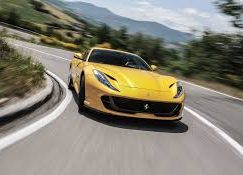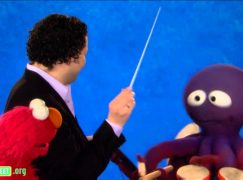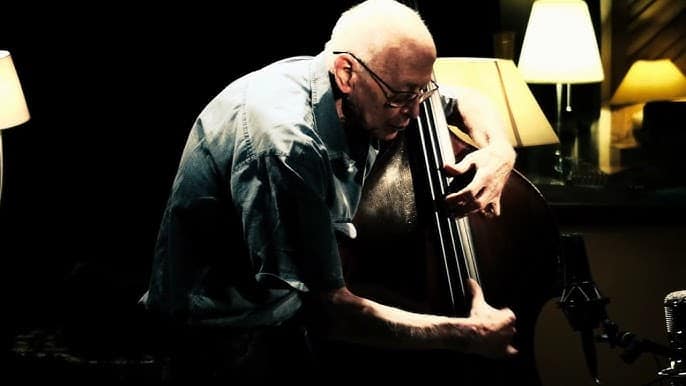This week’s album is a five-star Ferrari
mainFrom the Lebrecht Album of the Week:
Universally popular in the first half of the 20th-century, the music of Ermanno Wolf-Ferrari has vanished into thin air. A Venetian of German ancestry and education, Wolf-Ferrari rejected modernism and allowed himself to become — along with Mascagni, Repighi, Malipiero and most Italian composers — a cultural poster-boy for the Mussolini regime. This affiliation accelerated his reputational decline after 1945; he died three years later.
But there is nothing ideological about his music. Nor is it in any sense reactionary….
Read on here.

And here.





“Susannahs Secret” has been performed a few times and John Dexter wanted to do the prequel to Taming of the Shrew. The title has gone completely out of my head. He wanted to do it with Placido Domingo. Much later after Dexter’s death it was done with Carreras but again I can’t remember where. Sorry the short term memory is shot!
Pretty sure it’s called “Sly” and it was a big late-career success for Carreras.
We did a semi-staged version of “Susanna” and it was delightful. I don’t remember much about the music except thinking “hey, this is pretty good.” Light Puccini-esque, a la Gianni Schicchi.
Oh thanks so much Bruce. It was of course “Sly”.
BTW Susanas secret was of course that she smoked. Wonder what people would make of it today.
Now we’d have to make her secret that she’s running a child prostitution ring in the basement of a Washington DC pizza parlor. (Her husband finds out but still loves her anyway.)
Actually smoking is bad enough nowadays that it could be a scandal all over again. Imagine finding out that your spouse smoked and you didn’t know! OMG.
Ha, ha,ha!
God forbid some rabid exponent of Regietheater gets hold of it (if s/he hasn’t already…).
Really nice music to give pleasure:
https://www.youtube.com/watch?v=EnAS5sfXBOw
Sympathetic and sugary, with all the beauty on the outside, like the beauty of a fashion model. The sentiment is easy and exhausted on a single hearing.
The 2nd trio has more meat in it:
https://www.youtube.com/watch?v=b8zAhn8nr1o
… but it also suffers from falling-back upon clichees, cheapening the invention.
Comparison with, for instance, Faure’s piano trio, shows where the difference lies, and that is in the nature of the sentiment, not in the use of a musical language:
https://www.youtube.com/watch?v=H81_ZrXu2vk
Here is Wolf-Ferrari’s piano quartet:
https://www.youtube.com/watch?v=SvFBSsT7Huw
It was this type of music, which was popular at the time, that Schoenberg objected to and which gave him the idea that traditional forms were exhausted and trivialised because of being used too much. Hence his alternative – sounds which had not been used at all:
https://www.youtube.com/watch?v=NrtmTu1PxY0
“Wolf-Ferrari rejected modernism and allowed himself to become — along with Mascagni, Repighi, Malipiero and most Italian composers — a cultural poster-boy for the Mussolini regime.”
Dear Mr. Lebrecht, this amalgamation, this mischmasch, achieves what even John Borstlap’s most invidious rants anti-Schönberg, anti-Krenek, anti-Boulez, against modernism tout-court, were unable to achieve: bring me back from posting retirement.
Cultural poster-boys for the Mussolini regime?
Time to brush up your Harvey Sachs, Fiamma Nicolodi & Co.
Musical history in Italy under Mussolini had very few heroes (like Bruno Maderna), a substantial number of vilains, a great many collaborateurs, profiteurs, “Mitläufer” and turncoats.
It was nowhere as straightforward and clear cut as in Nazi Germany or the Soviet Union.
For one thing, the chasm between modernism, traditionalism and outright musical reaction did not follow party lines. Well into the 1930s, a number of leading modernists were also convinced fascists, notably the great Gian Francesco Malipiero, Alfredo Casella, and young talents such as — this may surprise some — Luigi Dallapiccola. Casella and Dallapiccola, married to Jewish wives, began to realise the error of their ways when the fascist regime introduced the Italian equivalent of Nürnberg racial discrimination in 1938. Nonetheless, Alfredo Casella remained in good enough standing with the regime to be dispatched as a musical envoy to Franco’s Spain in April 1942.
Where, to the dismay of his Spanish audience, he pleaded for rolling back the omnipresence of belcanto and bringing in a little hard-edged modernity.
The complexity of the Italian musical scene is best highlighted by one title, one date: that same year, 1942, on November 3, the Teatro Reale dell’Opera di Roma witnessed the Italian première of Alban Berg’s “Wozzeck”. Scheduled by Goffredo Petrassi, conducted by Tullio Serafin.
In 1932, an all-out attack orchestrated by Mussolini’s musical henchman Alceo Toni congregated Ottorino Respighi, Ildebrando Pizzetti, Riccardo Zandonai and many others under the banner of the “Manifesto di musicisti italiani per la tradizione dell’arte romantica dell’Ottocento”. Targets were mainly Malipiero and Casella. Malipiero had recently lost favour with Mussolini over his ”Favola del figlio cambiato”, libretto by Luigi Pirandello, who would go on to win the Nobel for literature, thus becoming untouchable despite his criticism of the regime. Nothing much happened to Malipiero and Casella. Nonetheless, after Respighi’s death in 1936, Malipiero would petition Mussolini about his late colleague’s chair in Rome. The rebuttal enraged him more than the growing aberrations of the regime did. Fascist officials concluded that the Venetian maestro was too cantankerous to be of any use.
As for Mascagni, by that time he had become a con man as much as a spent glory. While Casella was busy trying to salvage Mascagni’s legacy, Mascagni was busy backstabbing and badmouthing Casella (personal communication from Roman Vlad, erstwhile doyen of Italian musicologists and former pupil of Casella).
Where does that leave Ermanno Wof-Ferrari? I venture to suggest: nowhere.
He had become marginal, politically irrelevant, and hence of little use to the regime’s propaganda.
+100
Quite funny that, of all people, PDQ Bach gets irritated about critique of modernism.